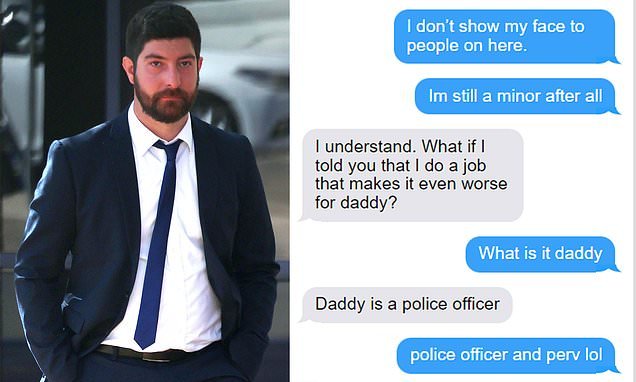The Federal Commerce Fee has secured agreements requiring Epic Video games, Inc., creator of the favored online game Fortnite, to pay a complete of $520 million in aid over allegations the corporate violated the Kids’s On-line Privateness Safety Act (COPPA) and deployed design tips, often called darkish patterns, to dupe thousands and thousands of gamers into making unintentional purchases.
The FTC’s motion towards Epic entails two separate record-breaking settlements. As a part of a proposed federal court docket order filed by the Division of Justice on behalf of the FTC, Epic pays a $275 million financial penalty for violating the COPPA Rule—the most important penalty ever obtained for violating an FTC rule. Moreover, in a first-of-its-kind provision, Epic can be required to undertake robust privateness default settings for kids and teenagers, guaranteeing that voice and textual content communications are turned off by default. Beneath a separate proposed administrative order, Epic pays $245 million to refund customers for its darkish patterns and billing practices, which is the FTC’s largest refund quantity in a gaming case, and its largest administrative order in historical past.
“As our complaints observe, Epic used privacy-invasive default settings and misleading interfaces that tricked Fortnite customers, together with youngsters and youngsters,” mentioned FTC Chair Lina M. Khan. “Defending the general public, and particularly youngsters, from on-line privateness invasions and darkish patterns is a high precedence for the Fee, and these enforcement actions clarify to companies that the FTC is cracking down on these illegal practices.”
“The Justice Division takes very critically its mission to guard customers’ information privateness rights,” mentioned Affiliate Legal professional Normal Vanita Gupta. “This proposed order sends a message to all on-line suppliers that gathering youngsters’s private info with out parental consent won’t be tolerated.”
Epic’s online game Fortnite is mostly free to obtain and play however expenses customers for in-game objects resembling costumes and dance strikes. The sport has greater than 400 million customers worldwide. The FTC alleged in two separate complaints that North Carolina-based Epic engaged in a number of illegal practices.
“Epic put youngsters and teenagers in danger by its lax privateness practices, and price customers thousands and thousands in unlawful expenses by its use of darkish patterns,” mentioned Samuel Levine, Director of the FTC’s Bureau of Client Safety. “Beneath the proposed orders introduced immediately, the corporate can be required to vary its default settings, return thousands and thousands to customers, and pay a record-breaking penalty for its privateness abuses.”
Privateness Violations
In a grievance filed in federal court docket, the FTC alleged that Epic violated the COPPA Rule by gathering private info from youngsters beneath 13 who performed Fortnite, a child-directed on-line service, with out notifying their dad and mom or acquiring their dad and mom’ verifiable consent. Epic additionally violated the FTC Act’s prohibition towards unfair practices by enabling real-time voice and textual content chat communications for kids and teenagers by default. Particularly, the FTC alleged that Epic:
Violated COPPA by Failing to Notify Dad and mom, Receive Consent: The FTC alleged that Epic was conscious that many youngsters had been taking part in Fortnite—as proven by surveys of Fortnite customers, the licensing and advertising of Fortnite toys and merchandise, participant assist and different firm communications—and picked up private information from youngsters with out first acquiring dad and mom’ verifiable consent. The corporate additionally required dad and mom who requested that their youngsters’s private info be deleted to leap by unreasonable hoops, and typically didn’t honor such requests.
The FTC alleged that Epic was conscious that many youngsters had been taking part in Fortnite—as proven by surveys of Fortnite customers, the licensing and advertising of Fortnite toys and merchandise, participant assist and different firm communications—and picked up private information from youngsters with out first acquiring dad and mom’ verifiable consent. The corporate additionally required dad and mom who requested that their youngsters’s private info be deleted to leap by unreasonable hoops, and typically didn’t honor such requests. Default settings hurt youngsters and teenagers: Epic’s settings allow reside on-by-default textual content and voice communications for customers. The FTC alleges that these default settings, together with Epic’s function in matching youngsters and teenagers with strangers to play Fortnite collectively, harmed youngsters and teenagers. Kids and teenagers have been bullied, threatened, harassed, and uncovered to harmful and psychologically traumatizing points resembling suicide whereas on Fortnite.
Epic staff expressed concern about its default settings. As early as 2017, Epic staff urged the corporate to vary the default settings to require customers to choose in for voice chat, citing concern in regards to the affect on youngsters specifically. Regardless of this and studies that youngsters had been harassed, together with sexually, whereas taking part in the sport,the corporate resisted turning off the default settings. And whereas it will definitely added a button permitting customers to show voice chat off, Epic made it tough for customers to search out, in response to the grievance.
Along with paying the document civil penalty, which fits to the U.S. Treasury, for violating the COPPA Rule, the proposed federal court docket order will prohibit Epic from enabling voice and textual content communications for kids and teenagers except dad and mom (of customers beneath 13) or teenage customers (or their dad and mom) present their affirmative consent by a privateness setting. Epic should delete private info beforehand collected from Fortnite customers in violation of the COPPA Rule’s parental discover and consent necessities except the corporate obtains parental consent to retain such information or the consumer identifies as 13 or older by a impartial age gate. As well as, Epic should set up a complete privateness program that addresses the issues recognized within the FTC’s grievance, and procure common, unbiased audits.
The Fee voted 4-0 to refer the civil penalty grievance and proposed federal order to the Division of Justice. The DOJ filed the grievance and stipulated order within the U.S. District Court docket for the Japanese District of North Carolina. Commissioner Christine S. Wilson issued a separate assertion.
NOTE: The Fee authorizes the submitting of a grievance when it has “motive to consider” that the named defendant is violating or is about to violate the legislation and it seems to the Fee {that a} continuing is within the public curiosity. Stipulated orders have the power of legislation when accredited and signed by the District Court docket choose.
Unlawful Darkish Patterns
In a separate administrative grievance, the FTC alleged that Epic used darkish patterns to trick gamers into making undesirable purchases and let youngsters rack up unauthorized expenses with none parental involvement. The grievance alleged that Epic:
Used darkish patterns to trick customers into making purchases: The corporate has deployed quite a lot of darkish patterns aimed toward getting customers of all ages to make unintended in-game purchases. Fortnite’s counterintuitive, inconsistent, and complicated button configuration led gamers to incur undesirable expenses primarily based on the press of a single button. For instance, gamers might be charged whereas trying to wake the sport from sleep mode, whereas the sport was in a loading display screen, or by urgent an adjoining button whereas trying merely to preview an merchandise. These techniques led to lots of of thousands and thousands of {dollars} in unauthorized expenses for customers.
The corporate has deployed quite a lot of darkish patterns aimed toward getting customers of all ages to make unintended in-game purchases. Fortnite’s counterintuitive, inconsistent, and complicated button configuration led gamers to incur undesirable expenses primarily based on the press of a single button. For instance, gamers might be charged whereas trying to wake the sport from sleep mode, whereas the sport was in a loading display screen, or by urgent an adjoining button whereas trying merely to preview an merchandise. These techniques led to lots of of thousands and thousands of {dollars} in unauthorized expenses for customers. Charged account holders with out authorization: Kids and different customers who play Fortnite can buy in-game content material resembling cosmetics and battle passes utilizing Fortnite’s V-Bucks. Up till 2018, Epic allowed youngsters to buy V-Bucks by merely urgent buttons with out requiring any parental or card holder motion or consent. Some dad and mom complained that their youngsters had racked up lots of of {dollars} in expenses earlier than they realized Epic had charged their bank card with out their consent. The FTC has introduced related claims towards firms resembling Amazon, Apple, and Google for billing customers thousands and thousands of {dollars} for in-app purchases made by youngsters whereas taking part in cell app video games with out acquiring their dad and mom’ consent.
Kids and different customers who play Fortnite can buy in-game content material resembling cosmetics and battle passes utilizing Fortnite’s V-Bucks. Up till 2018, Epic allowed youngsters to buy V-Bucks by merely urgent buttons with out requiring any parental or card holder motion or consent. Some dad and mom complained that their youngsters had racked up lots of of {dollars} in expenses earlier than they realized Epic had charged their bank card with out their consent. The FTC has introduced related claims towards firms resembling Amazon, Apple, and Google for billing customers thousands and thousands of {dollars} for in-app purchases made by youngsters whereas taking part in cell app video games with out acquiring their dad and mom’ consent. Blocked entry to bought content material: The FTC alleged that Epic locked the accounts of consumers who disputed unauthorized expenses with their bank card firms. Shoppers whose accounts have been locked lose entry to all of the content material they’ve bought, which may whole hundreds of {dollars}. Even when Epic agreed to unlock an account, customers had been warned that they might be banned for all times in the event that they disputed any future expenses.
Epic ignored multiple million consumer complaints and repeated worker considerations that “large” numbers of customers had been being wrongfully charged. In truth, Epic’s adjustments solely made the issue worse, the FTC alleged. Utilizing inner testing, Epic purposefully obscured cancel and refund options to make them harder to search out.
As a part of the proposed administrative order with the FTC over the corporate’s illegal billing practices, Epic should pay $245 million, which can be used to supply refunds to customers. As well as, the order prohibits Epic from charging customers by the usage of darkish patterns or from in any other case charging customers with out acquiring their affirmative consent. The order additionally bars Epic from blocking customers from accessing their accounts for disputing unauthorized expenses.
The Fee voted 4-0 to difficulty the proposed administrative grievance and to simply accept the consent settlement with Epic associated to its misleading billing practices.
The FTC will publish an outline of the consent settlement package deal within the Federal Register quickly. The settlement can be topic to public remark for 30 days after publication within the Federal Register after which the Fee will resolve whether or not to make the proposed consent order remaining. Directions for submitting feedback will seem within the printed discover. As soon as processed, feedback can be posted on Laws.gov.
NOTE: The Fee points an administrative grievance when it has “motive to consider” that the legislation has been or is being violated, and it seems to the Fee {that a} continuing is within the public curiosity. When the Fee points a consent order on a remaining foundation, it carries the power of legislation with respect to future actions. Every violation of such an order might lead to a civil penalty of as much as $46,517.




